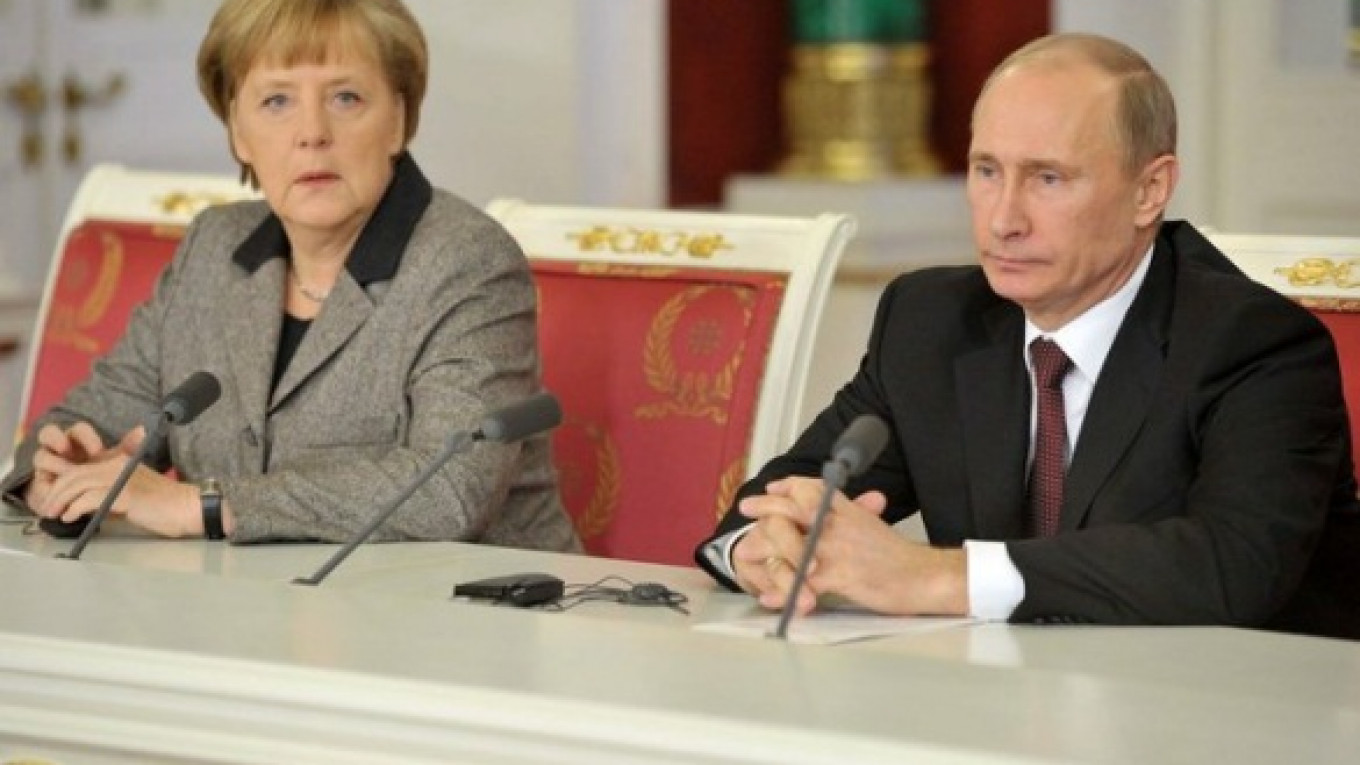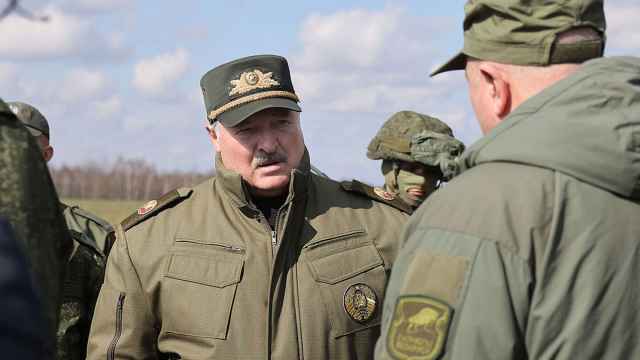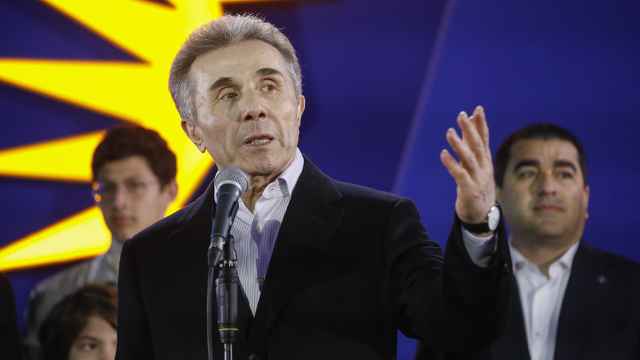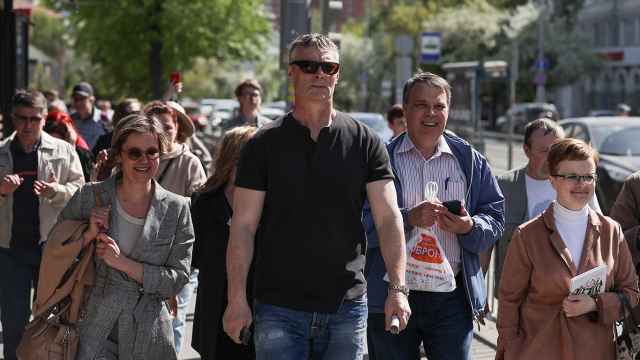President Vladimir Putin sparred with German Chancellor Angela Merkel over Pussy Riot, human rights and mutual criticism Friday, in what marked a new era of frostier relations between Berlin and Moscow.
Both leaders appeared relaxed, however, and chatted freely with each other during a signing ceremony of 10 political and economic agreements that preceded a joint press conference in the Kremlin.
When conversation between them turned to punk group Pussy Riot, in an exchange earlier in the day at the closing panel of the Petersburg Dialogue, the annual Russo-German forum, Putin apparently mischaracterized a stunt by a member of the group as anti-Semitic.
"Does she know that earlier one of them hanged an effigy of a Jew and said that Moscow needs to be rid of such people? We cannot support people who have anti-Semitic positions," Putin said at the forum, which kicked off the almost five-hour-long talks.
He was responding to remarks from Merkel, who said that people in Germany believe the two-year jail sentence for two band members is excessive.
Journalists and bloggers quickly pointed out that the incident Putin referred to did not feature effigies and can hardly be called anti-Semitic.
Four years ago, the radical art group Voina staged a performance in a Moscow supermarket in which five people were "hanged" in a mock execution to protest what activists called the illiberal policies of then-Mayor Yury Luzhkov.
Among the five were three migrant workers and two gay people, one of whom was Jewish, according to an official account on the blog of the group's founder, Alex Plutser-Sarno.
Staged on Sept. 8, 2008, which is City Day in Moscow, the performance was meant as an ironic present to Luzhkov, who group members accused of heavy-handed tactics against migrants and gays. The participants included two known Pussy Riot members, Nadezhda Tolikonnikova and Yekaterina Samutsevich, both of whom were found guilty of hooliganism inspired by religious hatred by a Moscow court this summer for an unsanctioned performance in Christ the Savior Cathedral.
Three hours after making the comment, Putin insisted on his version when he told a German reporter during the press conference that the performance had been staged "around a year ago" and included one Pussy Riot member.
"They hanged in a Moscow supermarket three effigies labeled Jew, immigrant and another category with a call to rid Moscow of these people. I believe this is a direct anti-Semitic insult," he said.
Putin also baffled reporters and experts by telling Merkel during the panel debate that Germany had been criticized by human rights groups because five of its states lacked laws for the protection of information.
The criticism could not be immediately explained. Germany has a Federal Data Protection Act as well as individual data protection laws in each of its 16 federal states. The country's privacy laws are regularly criticized as stringent by foreign firms, most recently by Google, which faced multiple legal challenges for its street view program.
Merkel, who appeared relaxed and at times smug, also challenged Putin on the series of tough laws passed by the State Duma during the past months.
"I cannot see that they further freedom. We ask ourselves if that is good for the development of Russian society or not," she said.
She also stressed that it was wrong to reject criticism as destructive. "If I was sulky every time I am criticized, I would not be chancellor for three days," she said.
Putin seemed to do his best not to appear taken aback and tried to go on the offensive whenever possible. When Merkel said that Germany always tries to coordinate foreign policy with the other 26 European Union members, he said this resembled a "cartel deal. And cartels are always bad things. You need to have your own position," he said.
He picked up on Merkel's remark that there is no ideal Russian and no ideal German by quipping that "for us, there is such a German — Ms. Federal Chancellor."
Related articles:
A Message from The Moscow Times:
Dear readers,
We are facing unprecedented challenges. Russia's Prosecutor General's Office has designated The Moscow Times as an "undesirable" organization, criminalizing our work and putting our staff at risk of prosecution. This follows our earlier unjust labeling as a "foreign agent."
These actions are direct attempts to silence independent journalism in Russia. The authorities claim our work "discredits the decisions of the Russian leadership." We see things differently: we strive to provide accurate, unbiased reporting on Russia.
We, the journalists of The Moscow Times, refuse to be silenced. But to continue our work, we need your help.
Your support, no matter how small, makes a world of difference. If you can, please support us monthly starting from just $2. It's quick to set up, and every contribution makes a significant impact.
By supporting The Moscow Times, you're defending open, independent journalism in the face of repression. Thank you for standing with us.
Remind me later.







